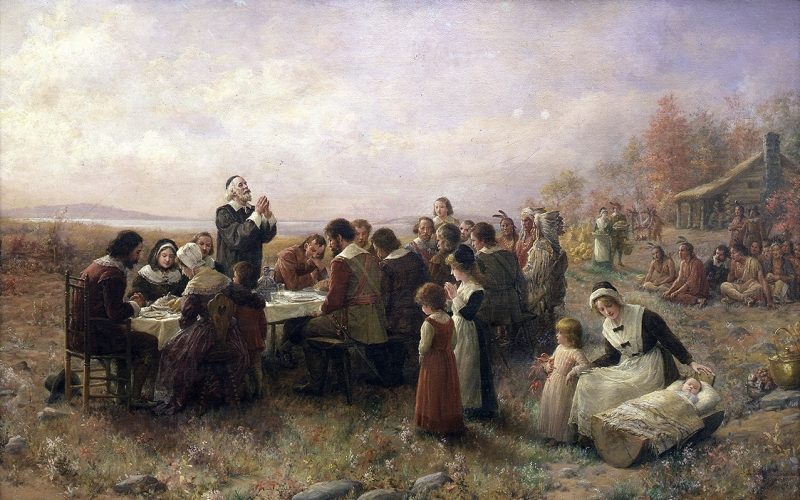Last Thursday, Americans all around the country sat around with their families to eat turkey and celebrate the holiday of Thanksgiving. On Thanksgiving, we give thanks to the people in our lives, and commemorate the first Thanksgiving, which was a feast between the Pilgrims and Native Americans that celebrated the first harvest at Plymouth Rock. The holiday must truly be an encapsulation of peace between cultures.
Except, it isn’t. At least, not for one of the two cultures. On Thanksgiving, instead of sitting with family eating turkey, many Native Americans in the New England area marched and mourned in the 47th annual Day of Mourning: a march to mourn the cultural genocide of the Native American people.
It seems completely strange at a glance. Why would an entire group of people be against a holiday that has roots in the unity between themselves and another group of people? Well, the truth is that many Native Americans do not see Thanksgiving as a day of unity. To them, Thanksgiving is a day that not only celebrates the atrocities that colonists inflicted upon Native Americans, but also the struggle that many Native Americans face today.
First off, Thanksgiving is often heavily associated with early colonists and their issues with Native Americans. This was thanks to the King Phillip’s War, also known as the First Indian War, in which the Plymouth colony took a direct part in the war. One of the causes of the war was the unrest on the Native American side caused by the new diseases like smallpox and measles that were brought in by the colonists by accident. This caused severe population loss throughout the various Native American tribes. The rising tensions weren’t helped by the fact that the new colonists started taking more and more Native American land as time went on, slowly kicking them out of their own territory. The taking of land was also often coupled with the raiding of Native American towns and several massacres. When the war eventually started, these tactics continued, and by the end of it all, the entire New England area was completely open for settlement, meaning that all of that Native American territory in that entire region fell under colonial control.
When considering this, it makes the mourning done by Native Americans today completely understandable. A nationally recognized holiday is associated with a group of colonists that helped to shape the future disenfranchisement and oppression that Native Americans would face in the future. Some might say that this hatred for a holiday is still unjust, as Native Americans are doing just fine in our current society. That mindset could not be more wrong, however.
Native Americans are still under constant societal pressure and disenfranchisement to this day. This can be seen most recently with the Dakota Accesses Pipeline. To the unaware, the Dakota Accesses Pipeline, or DAPL, is an oil pipeline that is currently being built through the Dakotas. The problem is that the pipeline is being built through the Standing Rock reservation, which will disrupt the Native American livelihood on the reservation, and the bulldozers have already demolished burial sites. It is the equivalent of someone building an oil pipeline straight through Naperville or Aurora, and having the local graveyard demolished in the process. Native Americans are protesting, of course, but the police have used extreme amounts of force against them. Protesters have been shot by rubber bullets, and even doused by fire hoses in below freezing weather. One woman even had to get her arm amputated after being hit directly by a concussion grenade. This just shows that the nation has not grown to respect Native Americans, and the celebration of Thanksgiving is only a small piece of evidence proving that lack of respect.
Now I’m not saying we should rid of Thanksgiving. The core ethos of getting together with family and giving thanks is obviously a good thing. It’s just that as long the holiday is associated with the history of oppression that has been committed against Native Americans, that second half of the ethos, the half about peace and respect and solidarity with another culture, will never be met.





Killian Kenny • Nov 28, 2016 at 7:22 am
Sad that some of my people had to die because of stupid white people (I’m 25% native, 24% white settler, 51% Irish). *Sigh*